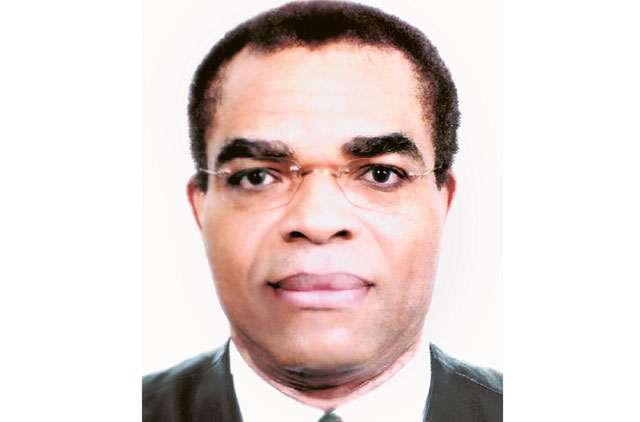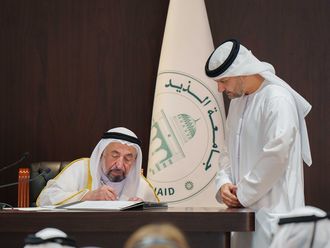
There are not enough academic programmes in the UAE to cater for market demand in the fast-growing tourism, arts and culture, sports and health care management sectors.
In the next five years the UAE will need to fill over 500,000 jobs in the tourism and hospitality industry to sustain its growth. This is a market growing at a predicted annual rate of between six and 10 per cent in the Middle East, making it the fastest growing regional tourism market in the world.
The international tourism market is estimated by the United Nations World Trade Organisation (UNWTO) to reach $1.6 billion (Dh5.9 billion) by 2020.
These findings were put forth in a two-year study called ‘The need for more professional training programmes in tourism, arts and culture, sports and health care management in the UAE.' The research was conducted by professors at Zayed University and the American University in Dubai and is set to be published in the World Journal of Management later this month.
"These industries are growing so fast in the UAE and research shows there is not enough manpower to take up these jobs," said Dr Odekhiren Amaize, Associate Professor of marketing communications at Zayed University and lead researcher of the study. "Instead, the industry invites people from abroad, while the institutions themselves need to invest in the already existing local talent."
As part of the research study, 114 secondary school, undergraduate and postgraduate students were surveyed to determine attitudes towards and awareness of the aforementioned disciplines. The findings revealed that apart from a slight awareness of their options of pursuing a career in tourism, 30 per cent of students, across the board, were unaware of their options in the remaining three disciplines.
Industry growth
"The students didn't think or know there should be fields like these," said Dr Amaize. "They didn't know they could major in such fields because most of what's on offer at universities here is business; very few offer studies in any of these related areas."
The report shows that the UAE's health care market will grow to $11.9 billion by 2015, resulting in a need to produce nearly 16,000 physicians and almost 32,000 additional nurses. With over 60 museums and heritage villages in the UAE and more than 11 annual arts and cultural festivals and more than 40 annual exhibitions there is a need for employees in this sector.
The same can be said for the sports and recreation sector as the UAE hosts several major international sports tournaments such as tennis, golf and motor sports. Apart from that, the local growth of thriving sports and recreational clubs calls for sports and recreation management graduates.
Of the 71 institutions registered with the Ministry of Higher Education and Scientific Research in the country, there are none that offers sports management programmes; while one, the Paris Sorbonne University in Abu Dhabi, offers a master's degree in the arts and culture field. There are three institutions that offer health care management programmes, while five offer programmes in the tourism and hospitality field.
Yet, the number of students registered for these courses makes up a comparatively small number of the institutions' student body. There are only 70 students enrolled in the tourism and hospitality undergraduate programme on offer at Middlesex University Dubai, which has a total student body of approximately 1,700.
Specialists needed
"This is a comparatively small amount of students to have on one course but many are in more traditional business programmes," said Dr Cody Paris, senior lecturer of the tourism and hospitality programme. "Tourism has struggled globally to become a legitimate area of study because people perceive it as work in a travel agency or hotel, but it is much broader than that."
Dr Paris added the UNWTO reports that in recent years, one billion international tourists have travelled across the globe and that the UAE is rising in the rankings of most visited countries. He added that the university's tourism department is always looking for new ways to recruit students onto the programme, and he says it is the hardest part.
Dr Amaize believes the students' narrow vision of their career options is due to a lack of career guidance at the secondary school level. "Boys we surveyed who were interested in sports didn't know they don't actually have to end up playing the sport to be employed in that field," Dr Amaize said. "They were unaware they could combine something with their interest in a particular sport to lead to a managerial position — as opposed to playing the sport professionally."
He added that in more educationally established countries such as the US, students receive numerous career counselling sessions. "I think this research shows that school counsellors need to consider improving their ability to inform young people on what jobs prospects are out there," Dr Amaize said.
He added that parents also need to be educated on their child's options in terms of potential career prospects as parents sometimes heavily influence what their children study.
- 500,000 - tourism jobs need filling in the UAE to sustain predicted five-year growth
- $11.9b - is what the UAE's health care market will grow to by 2015
- 16,000 - physicians are needed before 2015.
- 32,000 - nurses are needed before 2015
- 60 - museums and heritage villages are located across the UAE but only one university programme offers an arts and culture related programme













